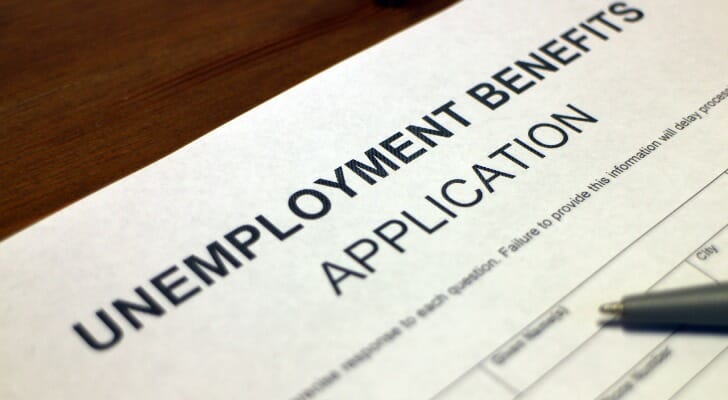Guide for Those Who Lost Their Job to Coronavirus
If you’ve lost your job due to coronavirus-related reasons, don’t worry. Both federal and state governments offer a range of coronavirus relief options to those unemployed. In fact, the coronavirus stimulus...Wednesday, April 1st 2020, 12:10 pm
By Rickie Houston CEPF®

If you’ve lost your job due to coronavirus-related reasons, don’t worry. Both federal and state governments offer a range of coronavirus relief options to those unemployed. In fact, the coronavirus stimulus package comes with numerous provisions that benefit renters, homeowners, student loan borrowers and others financially affected by COVID-19. As Americans seek the help of financial advisors to create a viable strategy for their money amid this economic downturn, laid-off employees should also educate themselves about particular coronavirus relief programs to weather this pandemic.
Unemployment BenefitsYou’ll first want to determine if you’re eligible for unemployment insurance or benefits. Any worker can qualify for unemployment compensation if they’re temporarily unemployed through “no fault of their own,” so you’ll likely be eligible to receive financial assistance as you search for other jobs. Many forms of unemployment compensation existed before the COVID-19 pandemic, but the government has expanded its enhanced unemployment benefits help aid those directly affected by the virus. The recently passed $2 trillion stimulus package, known as the Coronavirus Aid, Relief, and Economic Security Act (CARES), offers a weekly payment of $600 that is in addition to any other unemployment compensation or benefits an individual qualifies for. The weekly payment lasts until July 21, 2020, and the act provides pandemic unemployment assistance for up to 39 weeks (an increase of 13 weeks from the 26 weeks normally available). The act, which now covers independent contractors, gig workers, freelancers and furloughed workers, also applies to those who meet any of the following conditions:
- They are diagnosed with COVID-19 or are experiencing COVID-19 symptoms and seeking medical diagnosis
- A member of their household was diagnosed with COVID-19
- They’re providing care for a family or household member who has COVID-19
- They’re the primary caregiver for a child unable to attend school or another facility closed due to COVID-19
- They cannot reach place of employment because it is either closed, or quarantined due to a COVID-19 outbreak
- They were scheduled to commence employment and cannot reach workplace due to COVID-19 outbreak
- They have become the breadwinner of the household because the head has died because of COVID-19
- They had to quit their job because of COVID-19
Unemployment benefits will be of particular interest to those who work in places most likely to be affected by the COVID-19 recession.
Mortgage and Rent Relief
We’ve established that if you’re currently unemployed through “no fault of your own,” you may eligible for various unemployment benefits. But the federal government also provides coronavirus relief to homeowners and renters. The CARES Act contains several provisions offering financial protection to renters and homeowners. If you have a mortgage, you’ll want to get in touch with your lender and service provider. You may be able to have your mortgage payments suspended for up to 180 days without penalty.
Under the CARES Act, homeowners with a federally-covered mortgage can request up to 180 days of forbearance if they have been financially impacted by COVID-19. The law also allows homeowners to request an additional 180 days if needed. Additionally, loan services or lenders cannot charge any extra fees or penalties during the forbearance period. And, as of March 18, lenders covered by Fannie Mae and Freddie Mac can no longer enforce foreclosures or evictions for a 60-day period. When it comes to renters, however, the law offers a 120-day safety net protecting those in federally-backed housing from eviction.
Student Loan Relief OptionsIf you’ve still got student loan debt, you’ll have a range of coronavirus student loan relief programs at your disposal. And fortunately, under the new stimulus package, all federal student loan payments are suspended until September 30, 2020. During this period, interest won’t accrue on your loans. This provision strictly applies to federal student loans, and it is optional. Private student loans and Family Federal Educational Loans (F.F.E.L) don’t qualify.
If you’re eligible for federal student loan suspension, it’s best to contact your loan servicer to determine when it will suspend payments and waive interest.
Cut Costs and Adjust your BudgetThink about where you can make changes in your spending habits. Since your income may be limited, it’ll help to assess your discretionary, variable and fixed expenses. Discretionary expenses represent the things you want but don’t necessarily need. Fixed expenses are regular payments (e.g. rent, loan payments, etc.) that typically don’t vary in price. Variable expenses can function both as discretionary costs and necessities. If you already have a budget, think of how you can cut costs to strengthen your financial cushion during unemployment. But if you don’t currently have a budget established, SmartAsset’s free budget calculator can help.
Stay Updated on the News
The COVID-19 pandemic is constantly changing, and beyond the devastating public health toll, the coronavirus has waged an economic war that has left many without jobs. Regardless of your employment status, it’s wise to closely monitor the news so that you can effectively prepare yourself for the forthcoming recession. However, if you’re temporarily unemployed, the CARES Act comes with notable provisions that target different areas of financial relief. Nonetheless, remember to pay attention to local, state and national news so that you can take full advantage of government aid if you or someone close to you is affected by COVID-19.
Tips for Finding Unemployment Compensation Programs- The CARES Act provides Pandemic Unemployment Assistance and federal financial relief to any Americans temporarily unemployed due to the coronavirus, but you may also qualify for state-based unemployment benefits. If you’re wondering what forms of unemployment insurance and unemployment compensation your state provides, try researching your state’s department of labor website to learn more.
- In addition to coronavirus-related unemployment aid, Americans also stand to benefit from various coronavirus relief for rent and mortgage payments. If you’re a current homeowner or tenant, you may qualify for financial relief and eviction protection.
- If you’d like to consult a financial advisor during this period of uncertainty, SmartAsset’s free tool connects you with up to three advisors who suit your financial situation.
- Don’t forget to collect your coronavirus stimulus check. Use our coronavirus stimulus check calculator to see how much money you can expect to receive.
Photo credit: ©iStock.com/Hailshadow, ©iStock.com/Imgorthand, ©iStock.com/Fokusiert
The post Guide for Those Who Lost Their Job to Coronavirus appeared first on SmartAsset Blog.
Information contained on this page is provided by an independent third-party content provider. Frankly and this Site make no warranties or representations in connection therewith. If you are affiliated with this page and would like it removed please contact pressreleases@franklymedia.com
More Like This
April 1st, 2020
December 14th, 2024
December 14th, 2024
Top Headlines
December 14th, 2024
December 14th, 2024
December 14th, 2024
December 14th, 2024








